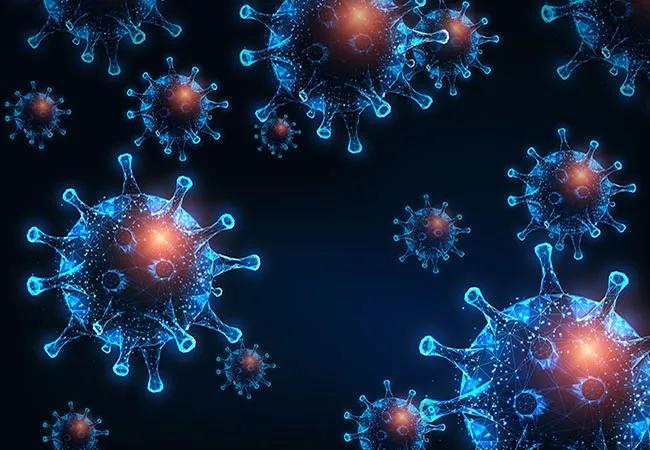A Q&A with infectious disease expert Eric Cober, MD

When it comes to infection control, protecting patients undergoing cancer treatment can seem like a moving target. Emerging COVID-19 variants, respiratory syncytial virus (RSV) outbreaks and growing flu cases are spurring a host of questions from clinicians looking to safeguard their patients. Today ConsultQD sat down with Eric Cober, MD, to discuss strategies for helping patients stay healthy during cancer treatment.
Advertisement
Cleveland Clinic is a non-profit academic medical center. Advertising on our site helps support our mission. We do not endorse non-Cleveland Clinic products or services. Policy
Right now, the biggest concerns are respiratory viruses such as COVID-19. We’re also entering influenza and RSV season as well, which even before the time of SARS was a difficult illness for many cancer patients, especially those who have undergone stem cell transplants.
There are multiple things patients can do to reduce their risk. Avoid large gatherings in close, indoor spaces, especially during flu and RSV season. Continue to wear a good-quality surgical mask. Get vaccinated and stay up to date on all your boosters.
In a sense there hasn’t been a “normal” for those undergoing treatment. Patients have always had to be careful to protect themselves from respiratory viruses, and now we have COVID-19 to add to that list.
When you think about advising patients, it’s all about risk stratification. If a patient hangs out at a bar for a few hours when there’s a COVID spike, there’s a high likelihood of getting COVID. If they stay home and don’t have visitors, they’re not likely to get it, but everyone has to make their own value judgments on where they fit on that spectrum of risk. For anyone with an active malignancy or who had a stem cell transplant within the last year or two, I’d advise them to be conservative on that spectrum because they are at risk of more severe outcomes with COVID.
Focus on the individual patient and the fact that as someone with cancer, they’re more susceptible than the general population. Unless they’ve personally experienced adverse side effects, it’s worth it to get the shot. You can try to build from there by encouraging the patient’s loved ones to get boosted. It’s not perfect protection but it’s better than not having it.
Advertisement
EVUSHELD offers some protection, though an estimated 45% of the circulating variants are resistant to it. As of today, the National Institutes of Health is still recommending EVUSHELD, though this may change if the percentage of variants that are resistant to it increases.
Probably not. Most of the commercially available tests can measure COVID-19 antibodies but they don’t give you a sense of how well those antibodies would neutralize COVID. In other words, there’s currently no way to know how the volume of antibodies a person has correlates to what protection they have against the virus.
Some cancer centers will give high-dose inactivated influenza vaccines to any patient who is immune compromised. At Cleveland Clinic we generally follow age labeling, which means those who are 65 or older receive the high-dose inactivated vaccine and anyone else gets the standard quadrivalent inactivated vaccine.
Ideally, I recommend getting the flu vaccine as soon as it’s available. There were already considerable cases of flu in early October this year. I generally advise not to try to “game” the system by waiting. The efficacy may wane a bit at the end of the season but we don’t know by how much, and generally we do not recommend getting a second flu shot at the end of the season.
Mpox (monkeypox) has a very specific set of risk factors, and there is very little risk to the general population right now. The predominant mode of transmission currently is through intimate sexual contact between men. If you have a patient with cancer who is in this category and isn’t in a mutually monogamous relationship, they would be at increased risk. You can reach out to us for information about the possibility of getting the vaccine.
Advertisement
No. The overall risk of contracting polio is quite low, but the inactivated polio vaccine has been part of our stem cell transplant vaccination protocol.
Indicated vaccines should be given before initiation of chemotherapy or immunosuppression whenever possible. I generally avoid giving vaccines to patients actively receiving chemotherapy because of reduced efficacy. That being said, it is safe to receive the COVID-19 and influenza vaccinations while receiving chemotherapy, and may even be advisable, given the need to protect against the circulating virus.
For live vaccines such as MMR and varicella (chicken pox) are contraindicated in patients with ongoing immunocompromise.
The CDC web page Interim Clinical Considerations for Use of COVID-19 Vaccines Currently Approved or Authorized in the United States is usually the single best source of information for physician questions regarding COVID vaccines . Also, the CDC’s COVID data tracker is updated weekly, and gives you a sense of what the circulating variants in your area are.
Editor’s Note: In November 2022, the World Health Organization and the U.S. Centers for Disease Control and Prevention renamed the monkeypox virus “mpox.” We have updated some language in this article to reflect that change.
Advertisement
Advertisement

Radiation therapy helped shrink hand nodules and improve functionality

Standard of care is linked to better outcomes, but disease recurrence and other risk factors often drive alternative approaches

Phase 1 study demonstrates immune response in three quarters of patients with triple-negative breast cancer

Multidisciplinary teams bring pathological and clinical expertise

Genetic variants exist irrespective of family history or other contributing factors

Study shows significantly reduced risk of mortality and disease complications in patients receiving GLP-1 agonists

Structured interventions enhance sleep, safety and caregiver resiliency in high-acuity units

Addressing rare disease and challenging treatment course in an active young patient